Celebrating Women’s History Month
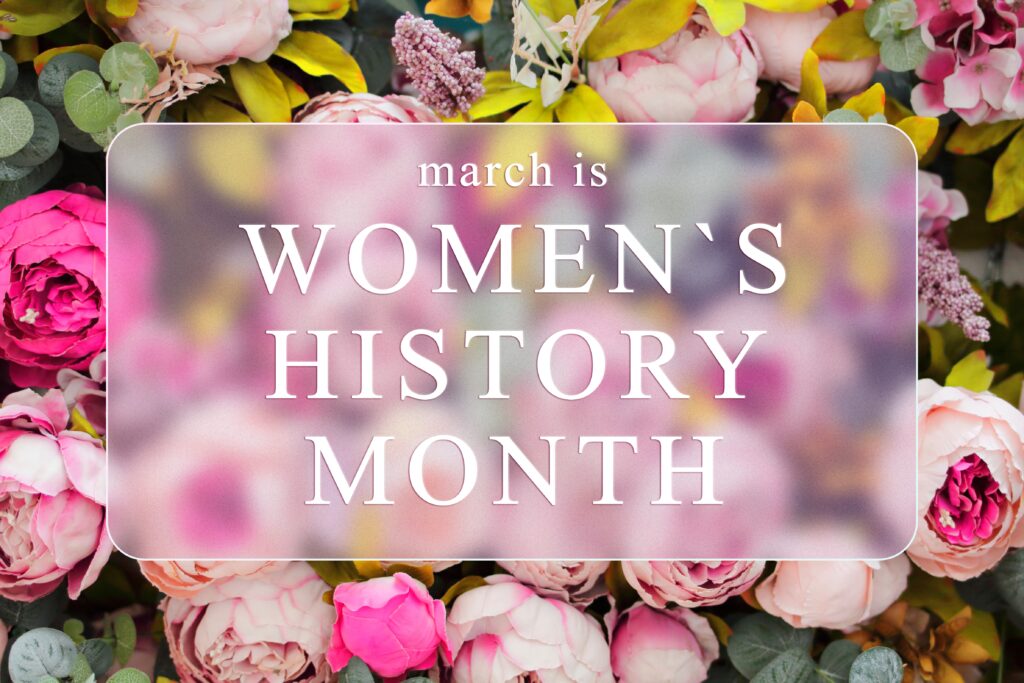
Written by Traci Bullock.
Women’s History Month
Is an annual March celebration of the accomplishments and contributions of women throughout history. Women’s History Month is observed in the United States, Canada, and other countries. The celebration originated in the United States as a week-long event in 1981. Finally, in 1987, the Women’s History annual celebration was expanded to a whole month in 1987.
Women’s History Month aims to recognize and celebrate the critical role that women have played in shaping our society and our world. It provides an opportunity to learn about the contributions of the most influential women around, from all walks of life, including scientists, activists, artists, politicians, and more. Women’s History Month also serves as a reminder of the ongoing struggle for gender equality and the need to continue advocating for women’s rights.

How to Celebrate Women’s History Month
Women’s History Month is an important time to recognize and celebrate women’s incredible accomplishments and contributions throughout history. This month-long celebration, observed in March each year, encourages women, and offers an opportunity to highlight the struggles, sacrifices, and successes of women from all walks of life.
There are many ways to celebrate Women’s History Month, ranging from individual actions to larger community events. For example, you can educate yourself about women’s influential role in your field or community by reading books, watching documentaries, or attending lectures on women’s history and contemporary issues.

You could also support women-owned businesses or donate time and resources to organizations empowering and uplifting women. By volunteering with organizations that support women, such as women’s shelters or mentoring programs, you can help make a tangible difference in the lives of women and girls.

Another way to celebrate Women’s History Month is to attend various women’s social focused events, such as art exhibitions, concerts, or film screenings. These events showcase the diverse achievements and contributions of women in history together. They can be an inspiring and empowering experience for all who attend.
Most importantly, you can advocate for women’s rights and gender equality. By using your voice to speak out against sexism, misogyny, and discrimination and by supporting policies and initiatives that promote women’s empowerment and equal opportunities, you can help create a more just and equitable world for all. And finally, take the time to celebrate the women in your life women who have inspired and supported you, and show them how much they mean to you.
Famous Women in History
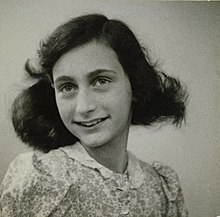
Anne Frank
Anne Frank (1929-1945) was a young Jewish girl who lived in Amsterdam during World War II. Her family went into hiding in 1942 to avoid Nazi persecution. They spent more than two years living in a secret annex before being discovered and deported to concentration camps. Anne kept a diary during this time, which was later published as “The Diary of a Young Girl” and has become one of the most widely read books in the world.
Anne’s significance for women lies in her courage and resilience in the face of unimaginable hardship during World War II. Despite the dire circumstances of her life, Anne never lost hope or gave up on her dreams. Instead, she wrote about her aspirations to be a writer, to travel the world, and to make a difference in the lives of others. Anne also challenged the gender norms of her time by questioning women’s traditional roles and advocating for their equality.
Anne Frank’s diary has inspired countless people worldwide, especially young women, to pursue their dreams and speak out against injustice. Her story is a powerful reminder of the human capacity for hope, perseverance, and resilience, even in the darkest of times.
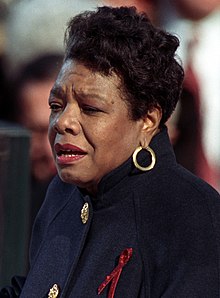
Maya Angelou
Maya Angelou (1928-2014) was a renowned poet, writer, and civil rights activist born in St. Louis, Missouri, in 1928. She is best known for her autobiography, “I Know Why the Caged Bird Sings,” which tells the story of her childhood and early adulthood.
Angelou’s significance for many women lies in the unapologetic embrace of her Black woman identity and her commitment to using her voice and art to fight for equality and justice. Throughout her life, she spoke out against racism, sexism, and other forms of oppression. In addition, she advocated for the power of individual and collective action to effect social change.

Angelou was also a trailblazer for women in the arts, breaking barriers and shattering stereotypes with her powerful poetry and prose. She was the first Black woman to write a screenplay that was produced and the first woman to recite a poem at a presidential inauguration. Her work continues to inspire generations of women to speak their truth, claim their power, and work towards a more just and equitable world.
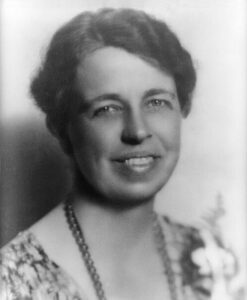
Eleanor Roosevelt
Eleanor Roosevelt (1884-1962) was an American politician, diplomat, and activist who served as First Lady of the United States from 1933 to 1945. She was also a tireless advocate and an influential activist for human and civil rights everywhere. She was key in forming the United Nations and the Universal Declaration of Human Rights.
Roosevelt’s significance for women lies in her groundbreaking work as a leader and advocate for gender equality. In addition to being an outspoken champion of women’s rights, she was active in the civil rights movement and used her position of power to push for policies and programs that would advance the cause of equal rights and women’s empowerment.
Throughout her life, Roosevelt challenged gender norms and expectations and modeled a new vision of what women could be and do. As a result, she was a trailblazer for women in politics and paved the way for future generations of women to pursue leadership roles and make their voices heard in the public sphere.
Roosevelt’s legacy as a feminist icon continues to inspire women worldwide to claim their power, speak their truth, and fight for a more just and equitable world.
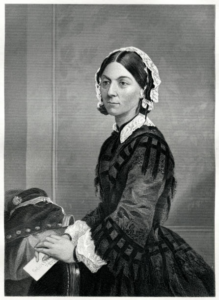
Florence Nightingale
Florence Nightingale (1820-1910) was an English social reformer and statistician best known for her pioneering work as a nurse during the Crimean War. She is widely regarded as the founder of modern nursing. Her efforts to improve the care and treatment of wounded soldiers transformed the field of medicine and paved the way for greater recognition and professionalization of nursing as a discipline.
Nightingale’s significance for women lies in her determination to challenge traditional gender roles and expectations and to demonstrate the power and potential of women in positions of leadership and influence. Despite facing significant obstacles and resistance from male doctors and military officials, Nightingale persisted in her efforts to improve wounded soldiers’ conditions and advance the cause raising awareness of nursing as a profession.
Nightingale’s legacy as a trailblazer for women in healthcare continues to inspire generations of women to pursue careers in nursing and other healthcare fields and to use their skills and knowledge to make a difference in the lives of others. In addition, her commitment to social justice and her unwavering belief in the power of women to effect change serves as a powerful reminder of the ongoing struggle for gender equality and the need to continue fighting for justice and gender equality.
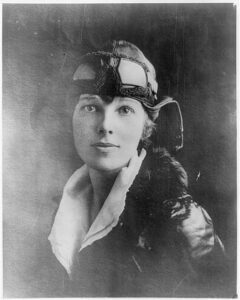
Amelia Earhart
Amelia Earhart (1897-1939) was an American aviation pioneer who became the first woman and American aviator to fly solo across the Atlantic Ocean in 1932. Her adventurous spirit and fearless determination captured the imagination of people worldwide, and she quickly became a symbol of women’s empowerment and possibility.
Earhart’s achievements in aviation paved the way for future generations of women to pursue careers in male-dominated fields. She challenged traditional gender roles and inspired women to break free from limiting societal expectations and pursue their dreams.
In addition to her groundbreaking achievements in aviation, Earhart advocated for women’s rights and social justice. She believed in the power of education and worked to promote opportunities for girls and women worldwide.
Earhart’s disappearance during an attempt to circumnavigate the globe in 1937 remains a mystery to this day. Still, her legacy as a trailblazer and symbol of women’s empowerment continues to inspire people worldwide. Her determination and courage remind women of the incredible things they can accomplish when they dare to dream big and pursue their passions with purpose and determination.

Marie Curie
Marie Curie (1867-1934) was a Polish-born French physicist and chemist best known for her pioneering work in radioactivity. She was the first woman to win a Nobel Prize and the first person ever to win two Nobel Prizes in different fields.
Curie’s research in radioactivity paved the way for the development of nuclear physics and revolutionized our understanding of the structure of matter. She also discovered two new elements: polonium, and radium. In addition, she developed new techniques for the isolation and purification of radioactive materials.
Despite facing significant discrimination and prejudice as a woman in a male-dominated field, Curie pursued her research with determination and passion. As a result, she was a trailblazer for women in science and an inspiration to generations of female scientists who followed in her footsteps.
Marie Curie’s legacy continues to inspire and motivate scientists and researchers worldwide. Her contributions to physics and chemistry have profoundly impacted our understanding of the natural world. In addition, her pioneering spirit and dedication to science remind women of the incredible things they can achieve when they take the opportunity to pursue their passions and dreams.
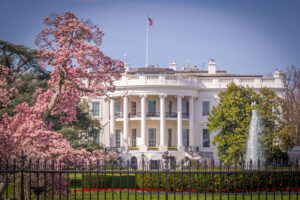
Influence of the First Lady
The role of the first person or First Lady of the United States has evolved over time. Still, one consistent theme has been their commitment to advocating for women’s rights and gender equality. Throughout history, First Ladies have used their positions of influence to promote women’s issues and raise awareness about women’s challenges.
One of the critical ways in which First Ladies have supported women is through their advocacy for policies and programs that address issues like health care, education, and workplace equality. For example, Eleanor Roosevelt used her position to push for policies providing more significant opportunities and protections for working women. At the same time, Betty Ford raised awareness about breast cancer. In addition, she helped destigmatize mental illness and addiction by speaking openly about her struggles.
First Ladies have also used their platforms to promote women’s entrepreneurship, leadership, and empowerment in recent years. Michelle Obama, for example, launched the Let’s Move! campaign to combat childhood obesity and advocated for education and leadership opportunities for girls and women worldwide young age through. Likewise, Dr. Jill Biden has pledged to continue promoting education and advocating for women’s issues, as well as supporting military families and promoting cancer research.
First Ladies have also played important symbolic roles as influential women representing and elevating the status of women in history itself. As the most visible woman in the White House, the First Lady has the power to shape public perceptions of women’s roles, many achievements and capabilities. By breaking gender norms and expectations and promoting women’s leadership and empowerment, First Ladies have helped pave the way for future generations of women to pursue their goals and achieve their dreams.

Finally, First Ladies have also used their positions to support and elevate women’s voices and experiences. They have hosted events and roundtables to hear about their concerns and needs directly from women. They have worked to amplify the stories and accomplishments of women from all walks of life. By spotlighting women’s achievements and contributions, First Ladies have helped inspire and empower women everywhere to claim their power and make a difference in the world.
First Woman
“First woman” is a term used to describe a woman who is the first person to achieve a particular milestone or accomplishment in a specific field, industry, or position. For example, Kamala Harris is the first woman to hold the office of Vice President of the United States, while Sally Ride was the first woman to travel to space.

Sally Ride
The term “first woman” is often used to highlight the historical significance and trailblazing accomplishments of women who have broken through barriers and shattered glass ceilings in their respective fields. These women serve as role models and inspirations to others. Moreover, their achievements pave the way for future generations of women to follow in their footsteps.

It’s important to note that “first woman” can be used in various contexts and is not limited to professional or political achievements. Women have also been the first to accomplish feats in sports, science, the arts, and other fields. Recognizing and celebrating the accomplishments of first women can help inspire future generations of girls and women to dream big and pursue their passions with confidence and determination.
Becoming a First Woman
Becoming a “first woman” in any field or industry requires overcoming barriers and challenges. While there is no one-size-fits-all formula for achieving this goal, there are some general steps you can take to increase your chances of making history as a trailblazing woman:
Identify your passion and set ambitious goals: To become a first woman, you must have a clear vision of what you want to achieve and set ambitious goals that align with your passions and values.
Develop your skills and knowledge: To excel in your chosen field, you must continually develop your skills and knowledge through education, training, and hands-on experience. Seek mentors and role models who can offer guidance and support.
Network and build relationships: Networking is crucial in any industry. It can open doors to new opportunities and help you connect with people who can support and advocate for you.
Embrace risk-taking and failure: To achieve something that has never been done before, you need to be willing to take risks and learn from your failures. Failure is a natural part of the process, providing valuable insights and lessons to help you succeed in the long run.
Advocate for yourself and others: As you pursue your goals, speaking up for yourself and others facing similar barriers and challenges is essential. Use your voice to advocate for equal opportunities and to challenge discrimination and bias.
Becoming a first woman is not easy, but it is possible with hard work, determination, and perseverance. By following your passions, developing your skills, building relationships, taking risks, and advocating for yourself and others, you can make history and inspire future generations of girls and women to follow in your footsteps.
Written by Traci Bullock
We hope you found this article helpful.
To receive our free newsletter, contact us here.
Subscribe to our YouTube Channel for more updates.
If you have questions or need expert tax or family office advice that’s refreshingly objective (we never sell investments), please contact us or visit our Family office page or our website at www.GROCO.com. Unfortunately, we no longer give advice to other tax professionals gratis.
Considerately yours,
GROCO, GROCO Tax, GROCO Technology, GROCO Advisory Services, GROCO Consulting Services, GROCO Relationship Services, GROCO Consulting/Advisory Services, GROCO Family Office Wealth, and GROCO Family Office Services.
Amazon Best Seller, “My Path” Donates 100% of Proceeds
Alan L. Olsen, CPA and Author of the Amazon best selling book “My Path, Living the Life You Deserve”, is donating all proceeds from the book towards supporting the James Alma Lee Learning Center and Southern Virginia University. The Book is now an Amazon best seller! We are excited and proud to announce that after…
Nick Sonnenberg – Founder of Leverage
Nick Sonnenberg Interview Highlights About Nick Sonnenberg: Nick Sonnenberg is the founder and CEO of Leverage, a business efficiency consultant, Inc. columnist and author of the upcoming book, Come Up For Air: How Teams Can Leverage Systems and Tools to Stop Drowning in Work. As a serial entrepreneur with a passion for productivity and a background in data…
Evan Carmichael – Crushing It on YouTube
Evan Carmichael, Experienced YouTuber Crushing It on YouTube About Evan Carmichael Evan Carmichael #Believes in entrepreneurs. Gary Vaynerchuck called him the DJ who inspires people and Ed Mylett called him the modern-day Napoleon Hill. At 19, he built and then sold a biotech software company. At 22, he was a venture capitalist raising $500k to…




